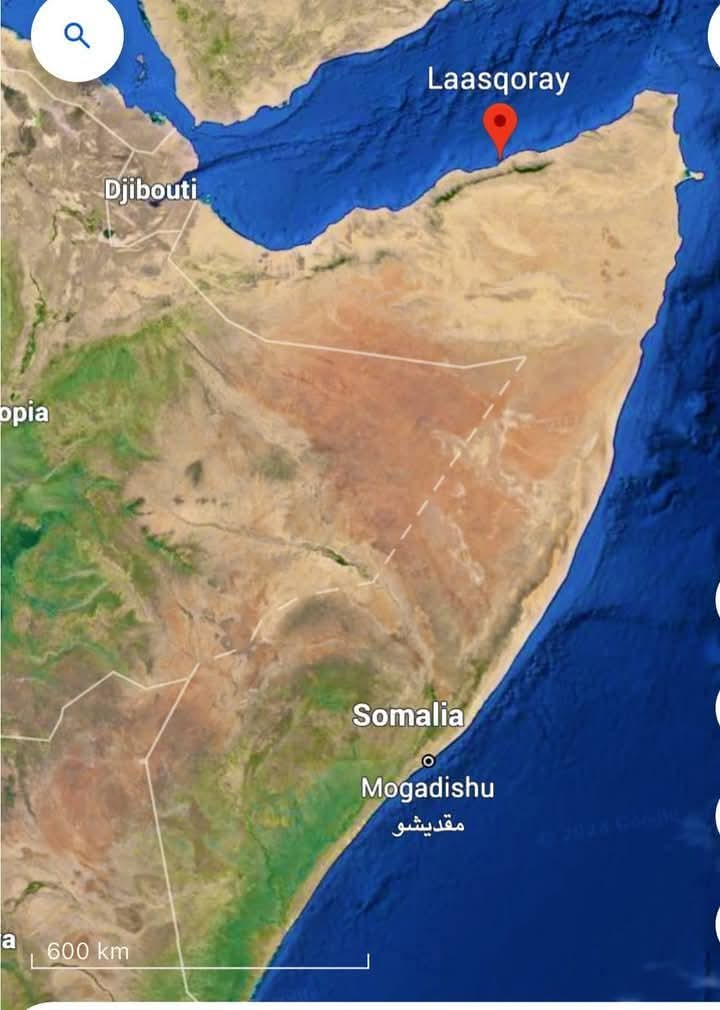Rebuttal to Baseless Claims Involving UAE Drone Operations in Sudan
Context and Overview
Recent allegations suggesting that the United Arab Emirates (UAE) has used Bosaso Airport—or any Somali territory—for drone operations targeting Sudan are entirely unfounded.
The individual referred to as “Professor” Abdiwahab, who maintains well-established ties with Fahad Yasin—a figure widely linked to Qatari intelligence—has once again put forward a narrative that is entirely unfounded.
These claims form part of a broader disinformation campaign aimed at creating confusion and sowing division.
There is no credible evidence to support the allegation that the UAE has used Bosaso Airport, or any other Somali territory, for drone operations in Sudan.
These baseless accusations appear to serve a political agenda driven by individuals close to Fahad Yasin, elements within President Hassan Sheikh’s circle, and their Qatari sponsors.
Qatar has a well-documented track record of sponsoring media manipulation and disinformation efforts targeting the UAE. This latest claim fits that pattern.
Puntland firmly rejects any suggestion of involvement in such activities, and it is deeply concerning to see Sudan drawn into a narrative shaped by external actors pursuing their own geopolitical objectives.
Key Findings from the New York Times Investigation into the Bosaso Port Attack and Alleged Qatari Involvement.
- Source of the Evidence
The New York Times obtained an audio recording—allegedly intercepted by a foreign intelligence service hostile to Qatar—featuring a phone conversation between Khalifa Kayed al‑Muhanadi, a businessman reportedly close to Qatar’s Emir, and the Qatari ambassador to Somalia. - Content of the Recording
In the recording, al‑Muhanadi appears to link a May 2019 car bombing in Bosaso to a strategy intended to drive out the United Arab Emirates (UAE) and secure commercial advantage for Qatar.
He is quoted as saying:
“The bombings and killings … were intended to make Dubai people run away from there … Let them kick out the Emiratis, so they don’t renew the contracts with them—and I will bring the contract here to Doha.”
The ambassador reportedly offers no objection, replying:
“So that’s why they are having attacks there, to make them run away.”
Al‑Muhanadi continues:
“Our friends were behind the last bombings.”
- No Direct Denial
Neither al‑Muhanadi nor Qatari officials denied the authenticity of the recording when approached by The New York Times. However, they emphasized that al‑Muhanadi was acting in a private capacity and not as an official representative of the Qatari government. - Qatar’s Official Response
In a statement, the Qatari Government Communications Office (GCO) asserted:
“Qatar’s foreign policy has always been one of creating stability and prosperity—we do not meddle in the internal affairs of sovereign countries. Anybody doing so is not acting on behalf of our government.”
Qatar also claimed it had requested a copy of the recording from The New York Times, but had not received it.
- Broader Geopolitical Context
The New York Times framed the incident within the ongoing rivalry between Qatar and the UAE for influence in the Horn of Africa. Both nations have sought to assert control over strategic ports, provide military assistance, and build political alliances.
The Bosaso port—operated by UAE-based DP World under a long-term concession—was seen as a key strategic asset. The bombing appears to have been aimed at undermining that presence.
Response to NAHRS Statement on NYT Report
The National Alliance for Human Rights Organizations in Somalia (NAHRS) publicly dismissed The New York Times investigation, describing the claims as “completely unreasonable and ridiculous.”
NAHRS also warned against what it described as attempts by external actors to destabilize Somalia, while praising Qatar’s role in peacebuilding and humanitarian assistance.
However, this response raises serious concerns regarding the impartiality and credibility of NAHRS:
- Lack of Authenticity and Independence
NAHRS has not demonstrated itself to be a truly independent or credible human rights body with a consistent record of defending Somali citizens or upholding human rights standards. Its selective silence on key abuses undermines its legitimacy. - Political Alignment and External Influence
The organization is reportedly controlled by individuals with close ties to Somalia’s federal government—figures who also maintain connections with Qatari networks. Given the Somali government’s financial dependence on Qatari assistance, and Qatar’s well-known involvement in influencing Somali electoral processes,
NAHRS’s defense of Qatar’s alleged actions appears politically motivated rather than grounded in genuine human rights concerns.
This case highlights a broader issue: the use of politicized “civil society” groups to deflect accountability and promote the narratives of foreign sponsors—often at the expense of transparency, justice, and the interests of the Somali people.
The Bosaso Prison Break: The Role of Fahad Yasin and Qatar
It has been confirmed that terrorist groups executed a coordinated breach of Bosaso prison, resulting in the escape of a suspect directly involved in the attack that killed the former manager of Bosaso port, operated by DP World. This suspect is the individual who carried out the suicide bombing.
Reliable sources confirm that the prison break was financed by the Qatari government, with approximately $2 million transferred through multiple intermediaries. Fahad Yasin, former head of Somali intelligence and known for his close ties to Qatar, played a key role in orchestrating this operation.
These events reveal the dangerous and covert links between certain Somali political figures, foreign intelligence agencies, and terrorist organizations, representing a significant threat to the security and stability of the region, particularly Puntland.
Source:
New York Times: A Secret Recording Reveals a Qatari Plot in Somalia

